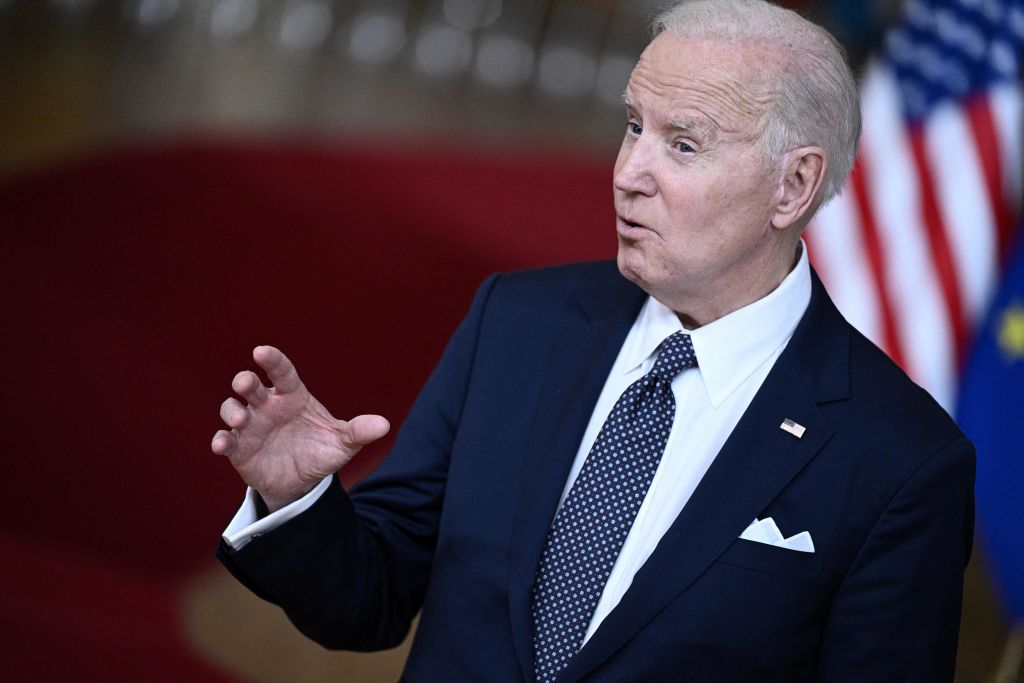Amid soaring inflation, President Joe Biden on Thursday said food shortages soon will be part of the picture.
After a meeting with G7 world leaders at NATO headquarters in Brussels, Biden held a news conference in which he was asked about the possibility of food shortages.
“With regard to food shortage, yes, we did talk about food shortages. And — and it’s gonna be real,” he said.
Biden on food shortages:
“With regard to food shortage…it’s gonna be real.” pic.twitter.com/F3dQ7NLqqB
— TheBlaze (@theblaze) March 24, 2022
“The price of these sanctions is not just imposed upon Russia, it’s imposed upon an awful lot of countries as well, including European countries and our country as well.”
With Russian wheat now banned by sanctions and Ukraine’s fields turned into a battleground, the impact will be felt globally.
Combined, Russia and Ukraine account for about 30 percent of the world’s wheat, according to The New York Times, as well as 17 percent of corn, 32 percent of barley, and 75 percent of sunflower seed oil.
In the United States, food prices are expected to rise on top of what in February was an 8.6 percent rise in food prices over 2021. That was the largest increase in 40 years.
There is absolutely no reason for Americans to face a food shortage. https://t.co/WAdYnfngna
— Hodd (@hojoismyname) March 24, 2022
In terms of an answer to the problem, Biden said that “we had a long discussion in the G7 with the — with both the United States, which has a significant — the third-largest producer of wheat in the world — as well as Canada, which is also a major, major producer. And we both talked about how we could increase and disseminate more rapidly food. Food shortages,” according to a White House transcript of Biden’s comments.
A document from French President Emmanuel Macron estimated that 27 nations, mostly in Africa and the Middle East, rely on Russia and Ukraine for more than half of their wheat, according to CNN.
“This situation will create a food crisis, extremely serious humanitarian situations in several countries and are sure to have massive political consequences in several countries,” Macron said.
The planned response will have grain stockpiles available to “avoid any shortages and keep prices down,” according to Macron, raising production and increasing sustainable agriculture.
David Beasley, executive director of the World Food Program, a United Nations agency, told The New York Times that the war “has only compounded a catastrophe on top of a catastrophe. There is no precedent even close to this since World War II.”
“Russia’s invasion has reminded us that the root cause of hunger around the world is human folly and reckless disregard for human life. The impact of a Ukraine gutted by the firestorm of war will be felt globally for years to come,” he wrote in an Op-Ed in The Washington Post.
Not everyone blames Russia, according to the Times.
“The United States thinks it has only sanctioned Russia and its banks,” said Nooruddin Zaker Ahmadi, director of Bashir Navid Complex, an Afghan imports company. “But the United States has sanctioned the whole world.”
This article appeared originally on The Western Journal.

























 Continue with Google
Continue with Google